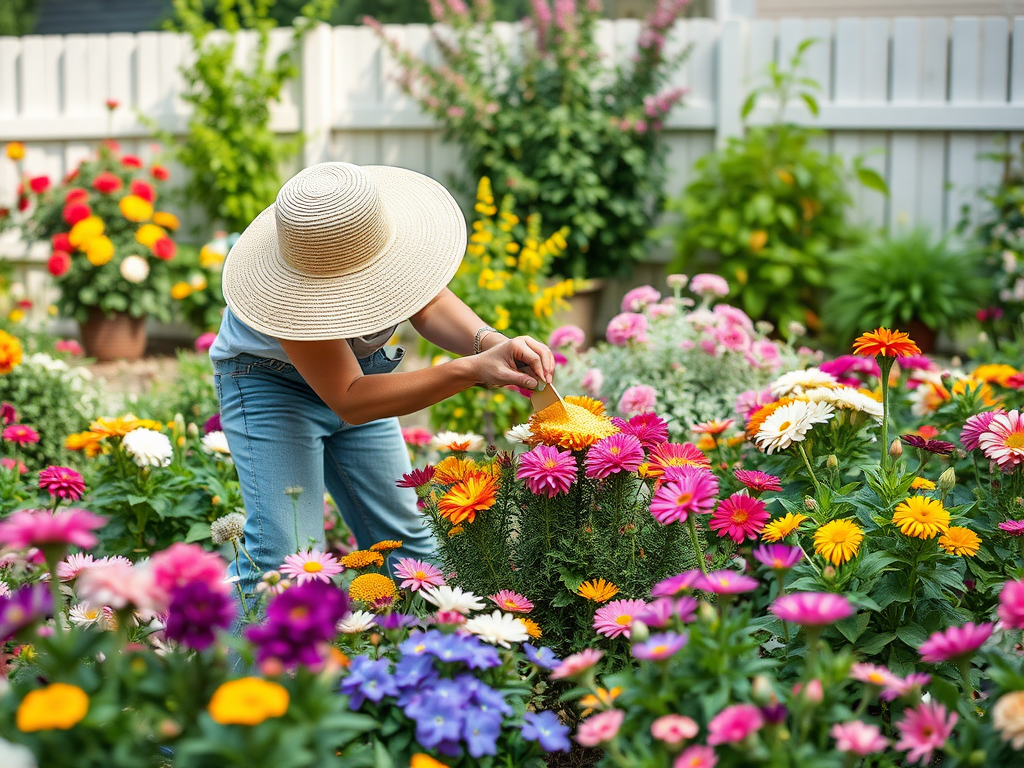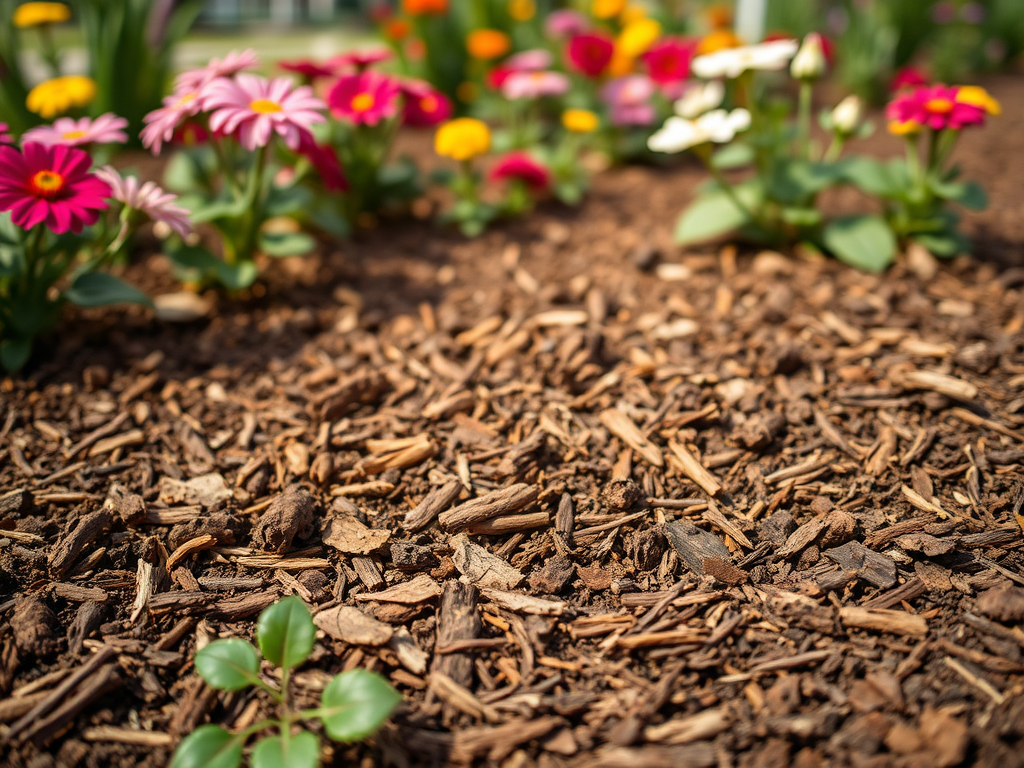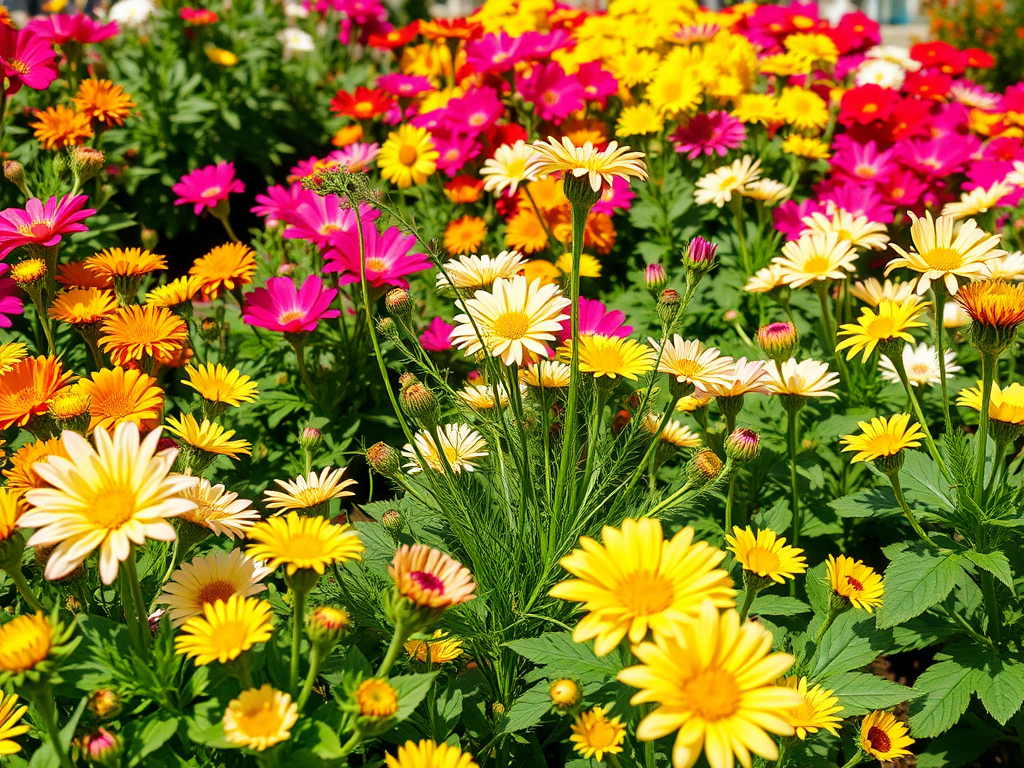Flower beds bring beauty and vibrancy to any garden, acting as a canvas where colors and aromas blend in harmony. However, they can also become battlegrounds against persistent weeds that threaten to overshadow your carefully nurtured blooms. The quest for effective weed control is one many gardeners undertake, yet it often leads to concerns about the potential harm to delicate plants. Thus, the importance of selecting the right weed killer cannot be overstated. This article will guide you through some of the safest and most effective weed killers that can protect your flower beds without causing damage. You’ll discover various options, each with unique properties, applications, and benefits, ensuring a flourishing garden that keeps invasive weeds at bay.
Key Considerations for Choosing Weed Killers

When you’re in the market for a weed killer, it’s crucial to consider three primary factors: the type of ingredients, safety for surrounding plants, and environmental impact. Many people are leaning towards organic solutions due to their lower toxicity levels and minimal harm to beneficial organisms in the garden. Additionally, understanding the active ingredients can help you evaluate the effectiveness and potential risks involved. For example, some synthetic herbicides can be potent but may compromise the health of your flower beds over time. Furthermore, it’s essential to familiarize yourself with application methods and timing to optimize results. A well-informed gardener is a more effective gardener, making these considerations vital for maintaining the integrity of your landscape.
Best Weed Killers for Flower Beds

Corn Gluten Meal
Corn gluten meal acts as a natural pre-emergent weed killer, which means it prevents weed seeds from germinating. Timing is everything, and to maximize its effectiveness, application should be done in early spring. This organic option not only controls weeds but also adds nitrogen to the soil, nourishing your flowers. While it can be effective against several types of annual weeds, it’s not a complete solution for established weeds. To ensure successful use, follow these simple steps:
- Apply corn gluten meal in dry weather.
- Spread evenly over the intended area at a rate of 20 pounds per 1,000 square feet.
- Water lightly after application to activate the product.
Vinegar Solutions
Vinegar can be a powerful ally in the fight against weeds. Its high acetic acid content makes it effective for burning off the foliage of unwanted plants. While this method excels at killing annual weeds and young perennials, caution is necessary when applying it around your flowers. You want to avoid contact with your beloved blooms. To effectively use vinegar as a weed killer, consider these tips:
- Use a vinegar solution with a minimum of 20% acetic acid for optimal results.
- Apply on a sunny day when temperatures exceed 70°F.
- Spray directly onto the leaves of the weeds for maximum impact.
| Weed Killer | Type | Effectiveness | Notes |
|---|---|---|---|
| Corn Gluten Meal | Organic | Preventive | Great for annual weeds; nourishes plants |
| Vinegar | Organic | Destructive | Effective on young weeds; avoid flowers |
| Boiling Water | Physical | Destructive | Effective for specific weeds; apply carefully |
| Mulch | Physical | Preventive | Suppresses weeds and enriches soil |
| Salt Solutions | Chemical | Destructive | Must be used with caution; can harm soil |
Boiling Water
Using boiling water is one of the simplest yet effective methods to eradicate weeds. The intense heat effectively cooks the unwanted plants, obliterating them at the cellular level. This method is especially useful in driveway cracks or around flower beds where precision is necessary. Keep in mind that boiling water does not discriminate and can harm any plant it touches. Here are some precautions to consider while using boiling water:
- Make sure to wear protective gloves and eyewear.
- Carefully pour the hot water at the roots of the weed.
- Wait for a few minutes to see results; the plants will wilt rapidly.
Mulch
Another fantastic approach for controlling weeds is using mulch. Organic mulch not only prevents weeds from taking root but also retains moisture, adds nutrients as it breaks down, and enhances the aesthetic of your garden. Various types of mulch, such as wood chips, straw, or shredded leaves, provide different benefits. When applying mulch, keep in mind that a thickness of 2-4 inches helps to form a barrier against weeds. Not only will your flower beds thrive, but you’ll also reduce the amount of time spent weeding.
Salt Solutions
Salt can be an effective weed killer, but it requires extreme caution. When applied judiciously, salt can dry out and eliminate many unwanted plants; however, high concentrations can negatively affect the surrounding soil and plants. If you decide to use salt, consider a mixture with water for more even application. Here are some key points to consider:
- Mix 1 part salt with 3 parts water for a potent solution.
- Apply using a small spray bottle to avoid excess contact with flowers.
- The salt solution should be applied directly to the weeds only.
Conclusion
Choosing the right weed killer for your flower beds is essential for nurturing healthy and vibrant plants. By exploring various organic and physical methods, you create a balanced approach to weed control that minimizes harm to neighboring flora. Each option presents its unique advantages, ensuring your gardening journey continues smoothly and effectively. Regular maintenance and timely applications can keep your flower beds flourishing while creating a haven of color and harmony.
Frequently Asked Questions
- What is the safest weed killer for flower beds? The safest weed killers for flower beds typically include organic options like corn gluten meal and vinegar.
- Can I use salt to kill weeds in my flower bed? Yes, but it should be used sparingly and carefully to avoid damaging surrounding plants.
- How often should I apply these weed killers? The frequency of application can vary; generally, follow the specific instructions for each product, aiming for prevention before weeds can establish.
- Are there any alternatives to chemical weed killers? Yes, alternatives include organic methods like boiling water, vinegar solutions, and using mulch to prevent weed growth.
- What should I do if I accidentally harm my flowers while applying weed killer? Rinse the area with water immediately to dilute the solution and minimize damage. If necessary, prune affected plants to promote recovery.
